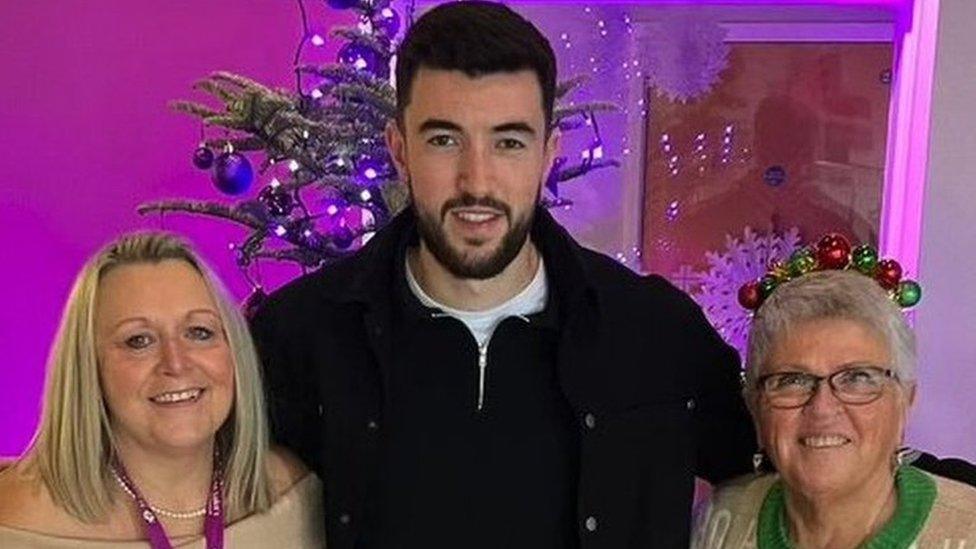Hospice funding gap giving boss 'sleepless nights'
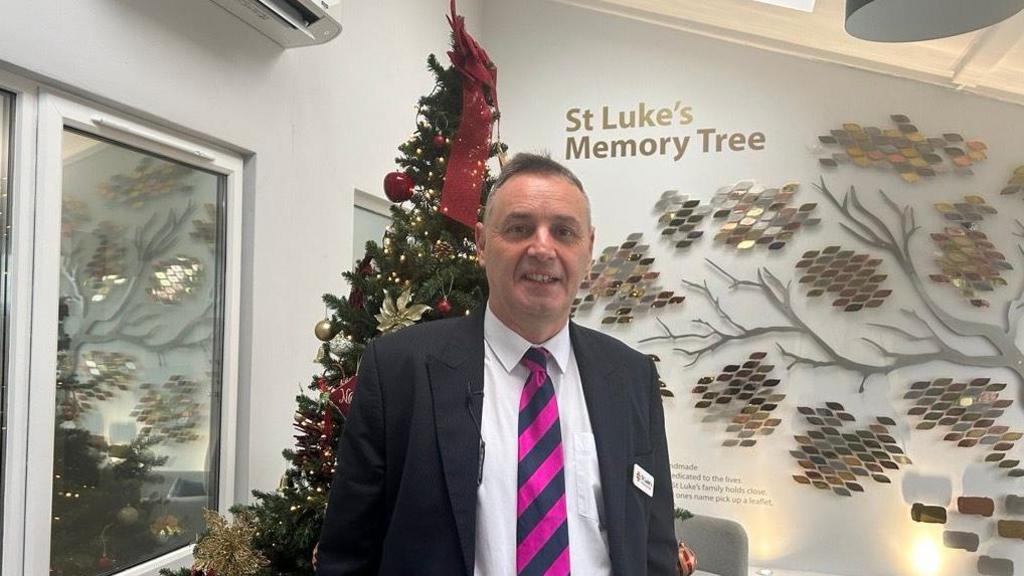
George Lillie said St Luke's was one of many hospices in the UK facing a funding deficit
- Published
A Devon hospice will have to make "difficult decisions" if the government does not announce a financial package with greater support, its bosses say.
St Luke's Hospice Plymouth said it was one of many hospices in the UK facing a funding deficit following the government's Budget in October.
Chief executive George Lillie said he had had a lot of "sleepless nights" as measures announced, including a national insurance employer contribution rise, could add an extra £700,000 to its budget for staffing costs alone.
A Department of Health and Social Care spokesperson said hospice funding for next year would be set out in "due course".
'Scary place'
Mr Lillie said: "I have a lot of sleepless nights.
"I do not want to generate fear, but I am becoming more and more worried.
"We are about providing special care for people at the most important time of their lives.
"We will not be cutting corners, but, if we get into the tail-end of next year, we may well have to make some big decisions about our services going forward.
"That's a scary place to be."
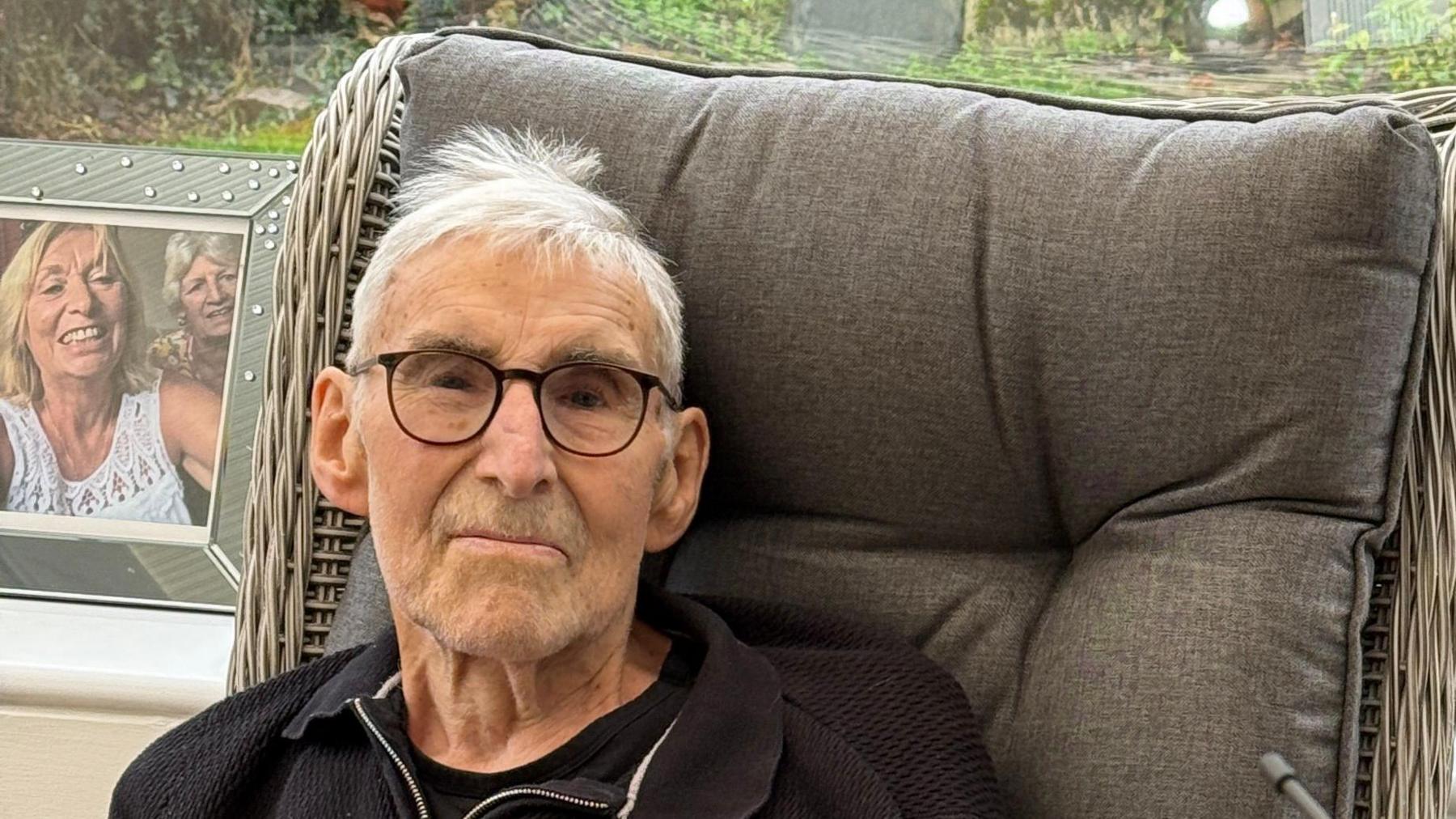
Ray Day receives care at home from St Luke's Hospice
Ray Day, 77, has advanced prostate cancer and has carers from the hospice visit his home three to four times a day.
He said it was "very rewarding" that he was supported by St Luke's and the charity had fitted a stair-lift at his home.
He said: "I'm feeling absolutely deflated that this condition... has hit me.
"Our son, who lives here, says: 'Dad, you have to just get on with it because we are all going to go at some stage and it's just your turn now.'
"It's hard for me to accept that but I've just got to get on with it."
He said his wife Sandra should have been a doctor as she sorted all his medication.
"If it wasn't for Sandra, I wouldn't be here," he added.
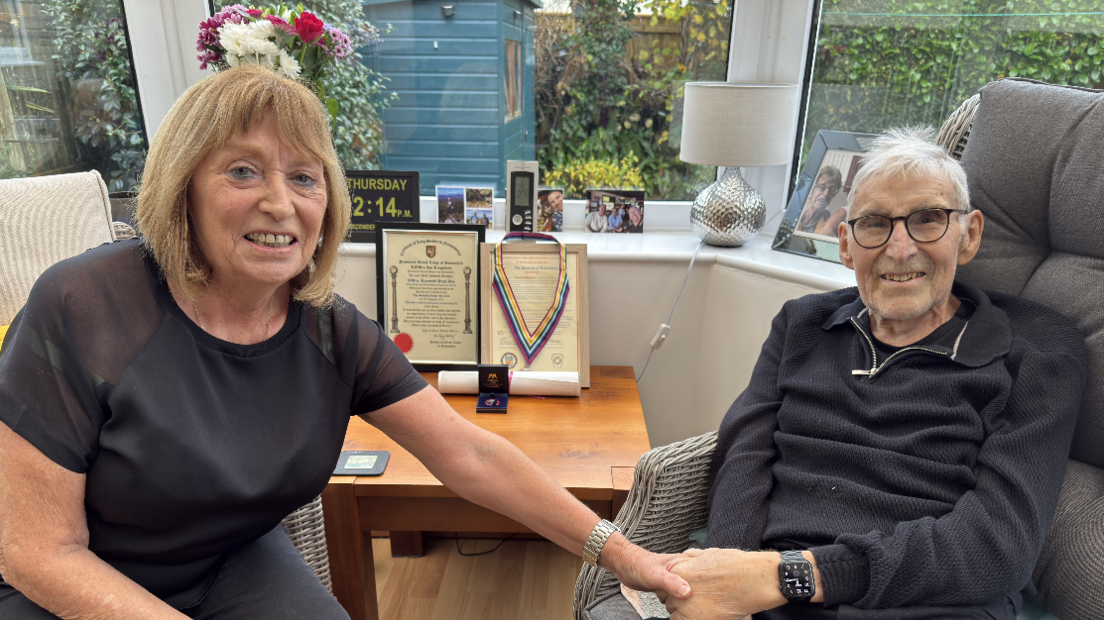
Sandra Day said if they need help St Luke's Hospice was on call
Mrs Day said: "We take each day as it comes and each day is a challenge. We deal with it as a couple.
"We laugh, we do cry, but we have had a good life. If there is a problem, we have people we can call."
Specialist palliative care community nurse Teresa Bickle said she has worked at St Luke's for nine years and supported Mr and Mrs Day.
She said: "We have regular phone contact and, if there are things with Ray's symptom control or complex symptoms that happen, Sandra will ring and we will do some adjusting of medication.
"I would liaise with the GP practice if we needed any change in medication.
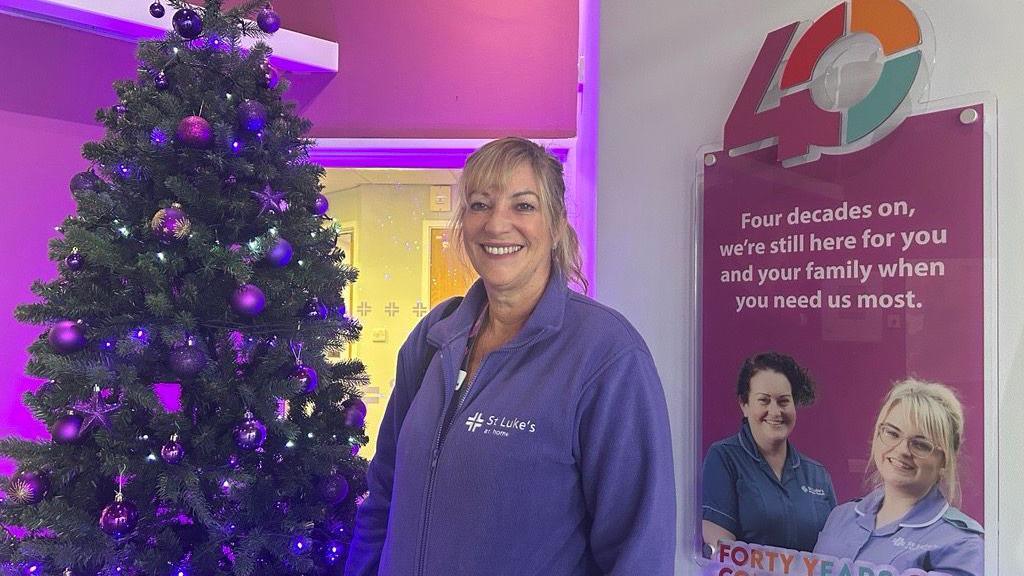
Teresa Bickle said they have negotiated more care for Mr Day
'Negotiated more care'
"We have increased the care. Initially it was just once every morning, but things were proving more difficult because of Ray's deterioration with his mobility and in general."
The increase in care has enabled Mr Day to remain at home with his family.
Ms Bickle said she supported families by talking through emotional, psychological, physical and medication support.
"We talk about anything and everything. We give Ray any opportunity if he needs any support from our patient and families support service," she said.
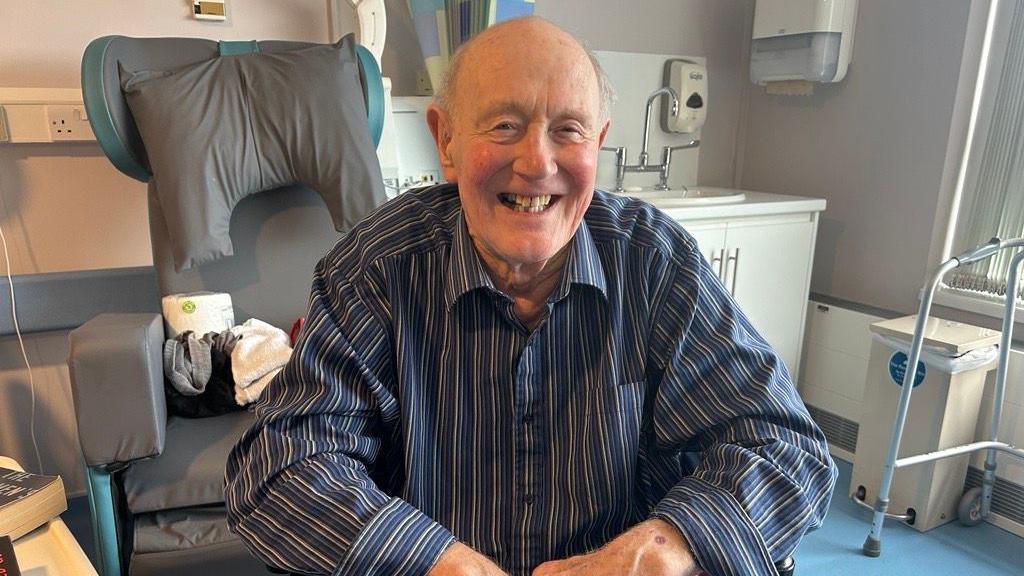
Robert Eaves has been an impatient at St Luke's Hospice in Plymouth for about one month
Robert Eaves, who has advanced prostate cancer, has been an inpatient at St Luke's for about a month.
He said: "I'm living. I have access to the NHS, which, in many countries, you wouldn't have access to anything.
"I am very grateful to be in the UK. I'm very grateful to the NHS. The staff here are fantastic."
He said he was not looking to "the end" as it did not concern him because he was able to get up, wash when he wished to "live a normal life".
Mr Eaves said he hoped to go home soon and was having his bungalow altered to allow wheelchair access.
The Department of Health and Social Care said: "We are working to make sure everyone has access to high-quality end-of-life care.
"The choices the chancellor made in the Budget allowed us to invest another £26bn in health and social care."
Follow BBC Devon on X, external, Facebook, external and Instagram, external. Send your story ideas to spotlight@bbc.co.uk, external.
Related internet links
- Published5 March 2024
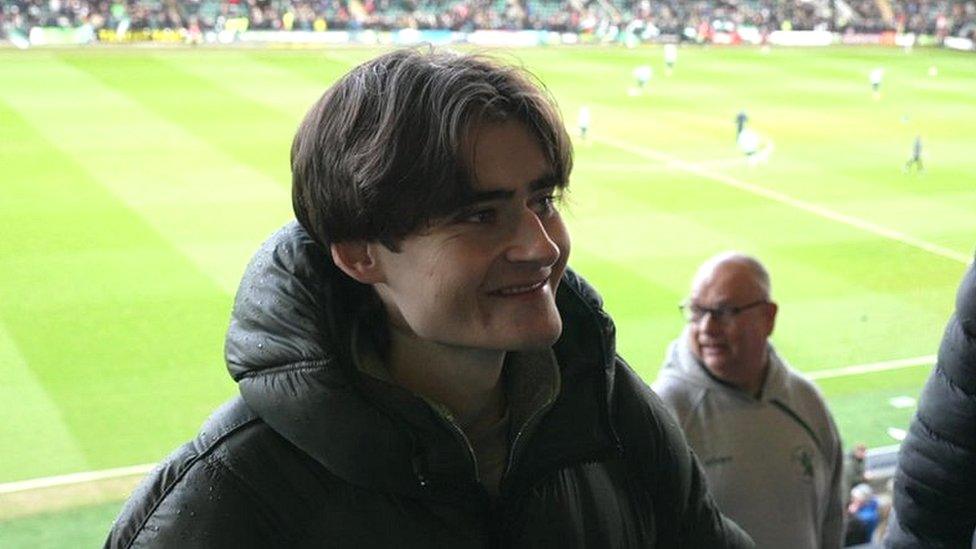
- Published9 May 2023
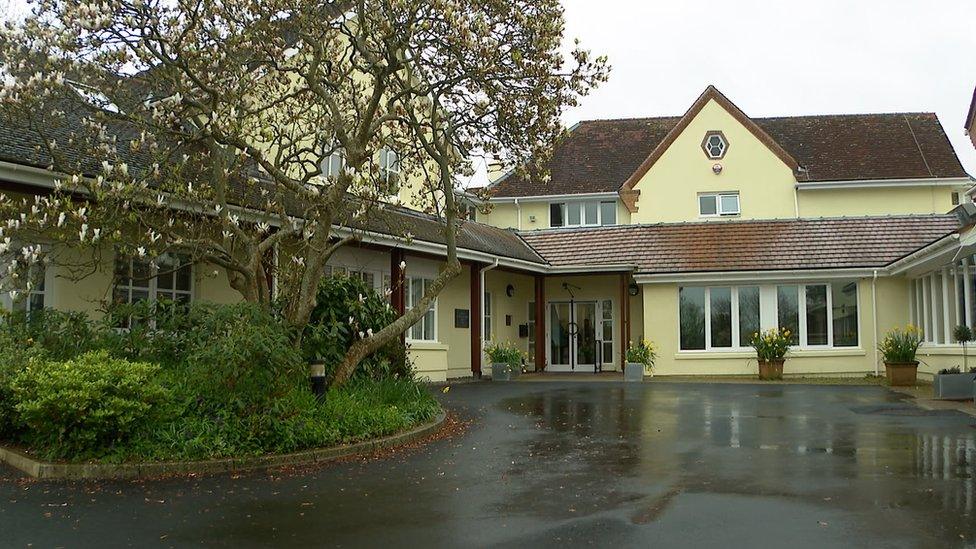
- Published2 February 2024
